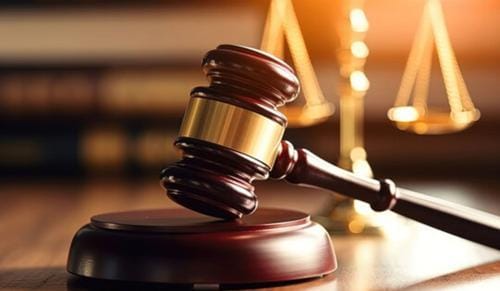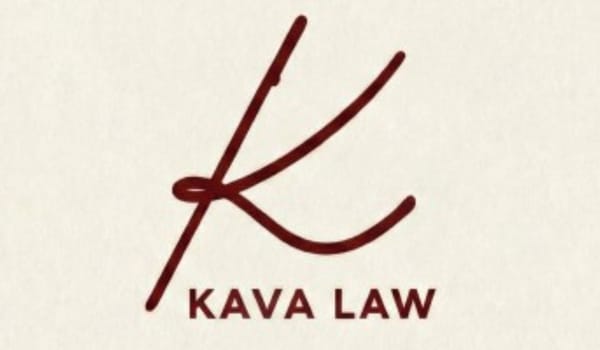Top 10 Landmark Judgments Every Law Student Should Know

The Indian judiciary has delivered numerous groundbreaking judgments that have shaped the constitutional and legal landscape of the country. These landmark cases not only define legal principles but also serve as cornerstones for understanding India's constitutional framework, fundamental rights, and the evolution of jurisprudence. Here are the ten most crucial judgments that every law student must master to build a strong foundation in Indian constitutional law.
1. Kesavananda Bharati v. State of Kerala (1973) - The Basic Structure Doctrine
Citation: AIR 1973 SC 1461
Significance: This case established the Basic Structure Doctrine, arguably the most important constitutional principle in Indian law. The Supreme Court held that while Parliament has the power to amend the Constitution under Article 368, it cannot alter or destroy the Constitution's basic structure.
Key Principles:
- Parliament's amending power is not unlimited
- Certain features of the Constitution form its basic structure and cannot be amended
- Basic features include supremacy of the Constitution, rule of law, independence of judiciary, federalism, secularism, and separation of powers
Impact: This judgment has been the foundation for numerous subsequent constitutional challenges and has protected the Constitution from potential legislative overreach.
2. Maneka Gandhi v. Union of India (1978) - Expansion of Article 21
Citation: AIR 1978 SC 597
Significance: This judgment revolutionized the interpretation of Article 21 (Right to Life and Personal Liberty) and established the interconnectedness of fundamental rights.
Key Principles:
- Article 21 encompasses not just physical existence but the right to live with dignity
- Articles 14, 19, and 21 form the "golden triangle" of the Constitution and are interlinked
- Any procedure established by law must be just, fair, and reasonable
- Right to travel abroad is included in personal liberty
Impact: This case marked a shift from restrictive to expansive interpretation of fundamental rights, making Article 21 one of the most dynamic provisions of the Constitution.
3. ADM Jabalpur v. Shivkant Shukla (1976) - The Habeas Corpus Case
Citation: AIR 1976 SC 1207
Significance: Known as the darkest hour of the Indian judiciary, this case dealt with the suspension of fundamental rights during Emergency.
Key Principles:
- The majority held that during Emergency, the right to habeas corpus could be suspended
- Justice H.R. Khanna's dissent emphasized that life and liberty are inalienable rights that cannot be completely suspended even during Emergency
Impact: This judgment was heavily criticized and was later overruled in K.S. Puttaswamy v. Union of India (2017). Justice Khanna's dissent is now considered the correct legal position.
4. Vishaka v. State of Rajasthan (1997) - Sexual Harassment Guidelines
Citation: AIR 1997 SC 3011
Significance: This landmark case addressed sexual harassment at the workplace and laid down comprehensive guidelines for its prevention.
Background: Filed after the brutal gang rape of social worker Bhanwari Devi who tried to prevent child marriage.
Key Principles:
- Sexual harassment violates Articles 14, 15, 19(1)(g), and 21 of the Constitution
- Employers have a duty to prevent and redress sexual harassment
- International conventions can be used to interpret constitutional provisions when domestic law is silent
Impact: The Vishaka Guidelines remained as the governing framework until the Sexual Harassment of Women at Workplace Act, 2013 was enacted.
5. Indra Sawhney v. Union of India (1992) - The Mandal Commission Case
Citation: AIR 1993 SC 477
Significance: This case upheld the constitutional validity of reservations for Other Backward Classes (OBCs) while setting important limitations.
Key Principles:
- 27% reservation for OBCs is constitutionally valid
- Total reservation should not exceed 50% except in extraordinary circumstances
- "Creamy layer" within OBCs should be excluded from reservations
- Reservations should apply only to initial appointments, not promotions
Impact: This judgment balanced social justice with merit and established the framework for reservation policies that continues today.
6. Minerva Mills v. Union of India (1980) - Parliament's Limited Amending Power
Citation: AIR 1980 SC 1789
Significance: This case reinforced the Basic Structure Doctrine and struck down provisions of the 42nd Amendment that gave Parliament unlimited amending power.
Key Principles:
- Parliament's power to amend the Constitution is limited and cannot be used to grant itself unlimited power
- The Constitution is supreme and not the Parliament
- Balance between Fundamental Rights and Directive Principles is essential
Impact: This judgment clarified that constitutional amendments are subject to judicial review and cannot destroy the Constitution's basic structure.
7. Golaknath v. State of Punjab (1967) - Fundamental Rights and Constitutional Amendments
Citation: AIR 1967 SC 1643
Significance: This case ruled that Parliament could not curtail fundamental rights through constitutional amendments.
Key Principles:
- Constitutional amendments are "law" within the meaning of Article 13
- Fundamental rights cannot be amended by Parliament
- Doctrine of Prospective Overruling was introduced
Impact: Though later overruled by Kesavananda Bharati, this case initiated important debates about the scope of fundamental rights and laid groundwork for the Basic Structure Doctrine.
8. S.R. Bommai v. Union of India (1994) - Limits on President's Rule
Citation: AIR 1994 SC 1918
Significance: This judgment curbed the misuse of Article 356 (President's Rule) and strengthened federalism.
Key Principles:
- Presidential proclamation under Article 356 is subject to judicial review
- President's Rule should be imposed only as a last resort
- State governments are not subordinate to the Centre; both have coordinate powers
- Floor test should be allowed to prove majority before dismissal
Impact: This case significantly reduced the arbitrary dismissal of state governments and strengthened India's federal structure.
9. Navtej Singh Johar v. Union of India (2018) - Decriminalization of Homosexuality
Citation: (2018) 10 SCC 1
Significance: This judgment decriminalized consensual homosexual acts by reading down Section 377 of the Indian Penal Code.
Key Principles:
- Section 377 violates Articles 14, 15, 19, and 21 insofar as it criminalizes consensual acts between adults
- Right to privacy, dignity, and autonomy are fundamental rights
- Sexual orientation is a natural characteristic and discrimination based on it is unconstitutional
Impact: This judgment was a landmark victory for LGBTQ+ rights and marked India's progress toward inclusivity and equality.
10. Lily Thomas v. Union of India (2013) - Immediate Disqualification of Convicted Politicians
Citation: (2013) 7 SCC 653
Significance: This case struck down Section 8(4) of the Representation of People Act, 1951, leading to immediate disqualification of convicted MPs and MLAs.
Key Principles:
- No distinction between sitting members and candidates for disqualification purposes
- Convicted legislators are disqualified immediately upon conviction
- Parliament cannot create protective provisions for sitting members that don't apply to candidates
Impact: This judgment significantly impacted Indian politics by ensuring accountability and reducing the protection available to convicted politicians.
These ten landmark judgments form the bedrock of Indian constitutional jurisprudence. Mastering them will provide law students with essential knowledge for understanding how the Constitution functions as a living document that adapts to changing times while preserving its core values and principles. They represent not just legal precedents but the ongoing story of India's democratic evolution and the judiciary's role in protecting constitutional governance.
Check out more developments here: LegalWiki.co
Join our WhatsApp group for more updates!




